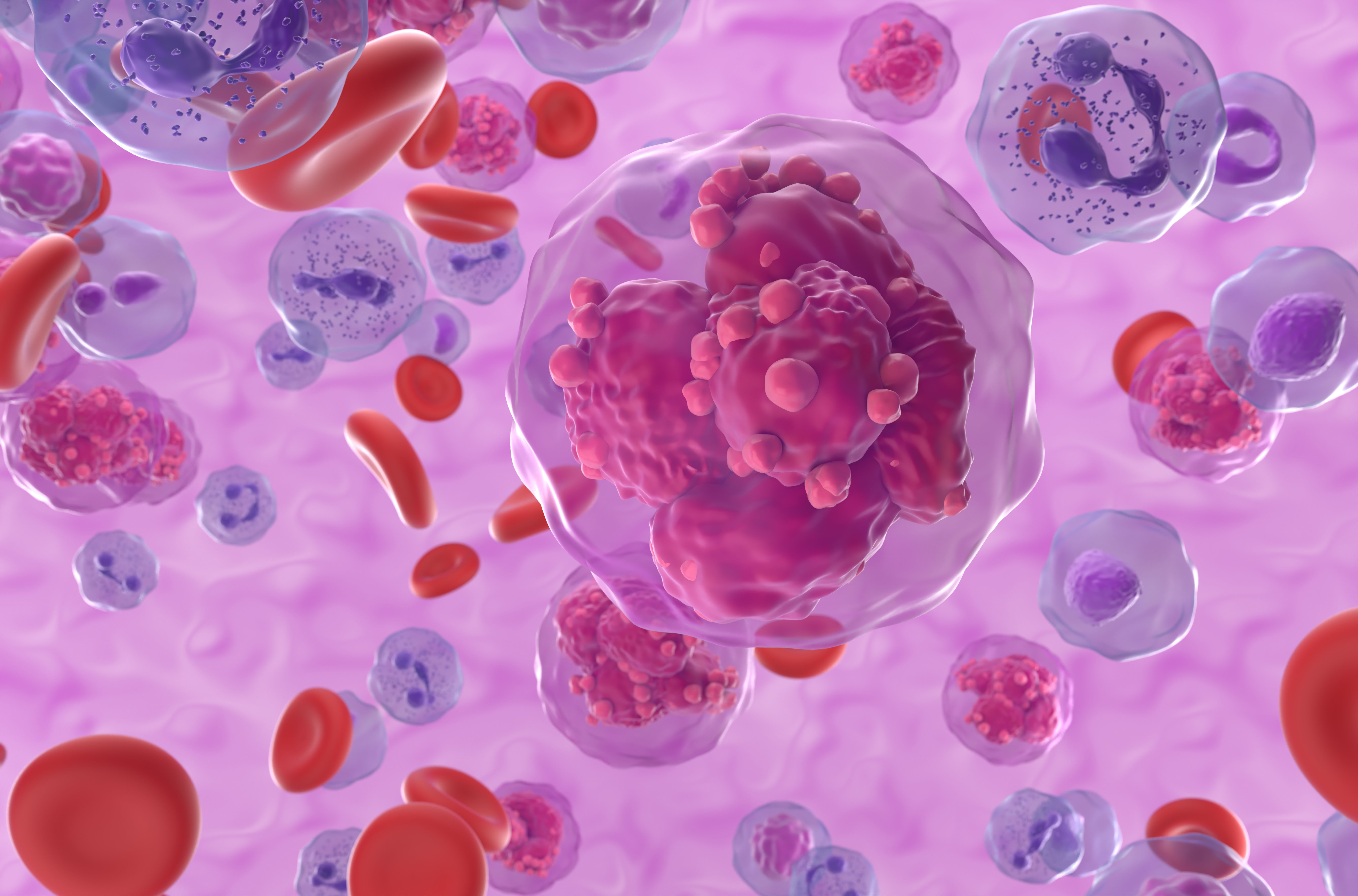FDA Grants Rare Pediatric Disease Designation to Galinpepimut-S in AML
The FDA granted galinpepimut-S a rare pediatric disease designation for the treatment of pediatric patients with acute myeloid leukemia.

- Rare pediatric disease designation has been granted to galinpepimut-S (GPS) by the FDA.
- This designation for GPS is intended for the treatment of pediatric patients with acute myeloid leukemia (AML).
- GPS is a multivalent, heteroclitic Wilms tumor 1 (WT1) peptide vaccine.
The FDA has granted a rare pediatric disease designation to GPS for the treatment of pediatric patients with AML.1
"GPS has already demonstrated promise in clinical settings for AML, and we believe its potential could extend to pediatric patients,” said Angelos Stergiou, MD, ScD hc, president and chief executive officer of SELLAS Life Sciences Group, in a news release. “Receiving rare pediatric disease designation from the FDA is another acknowledgment of the critical need for new treatment options for AML and our results in adult patients.
A phase 2 study (NCT01266083) previously evaluated GPS for the treatment of adult patients in complete remission (CR) from AML or acute lymphoblastic leukemia (ALL).1,2 GPS is also being evaluated in the phase 3 REGAL trial (NCT04229979) against investigator’s choice of best available maintenance therapy for the treatment of adult patients with AML in second or later CR with or without incomplete platelet recovery.3
The phase 2 trial demonstrated encouraging survival outcomes, including that at 3 years, 86% of patients (n = 22) were evaluable for survival, with 47% (n = 9/19) alive for at least 3 years. This exceeded the prespecified overall survival (OS) goal of 34% at 3 years. Although the median OS from diagnosis was not reached, it was projected to surpass 67.6 months. The estimated 6- and 9-month OS rates postvaccination were 100% (95% CI, 100%-100%) and 77% (95% CI, 54%-90%), respectively.
Additionally, the median disease-free survival (DFS) from first CR was 16.9 months, and the median event-free survival (EFS) was 9.4 months, with 6- and 9-month EFS rates of 64% (95% CI, 40%-80%) and 54% (95% CI, 32%-72%), respectively.
Acute myeloid leukemia (AML) cells in blood flow: © LASZLO - stock.adobe.com

“In our phase 2 trial in adult patients, which included patients as young as 25, clinical benefits were significantly higher in younger patients, which was expected based on the mechanism of action of GPS that is mediated via the immune system that is generally better preserved in younger patients, and even more so in children. With both of our development candidates, GPS and SLS009, now granted rare pediatric disease designation for AML, this recognition further reinforces our commitment to delivering potential new therapies to children affected by this challenging condition,” added Stergiou in the press release.1
A subgroup analysis of the phase 2 trial evaluating GPS revealed that in patients under 60 years old (n = 9), both the median OS and DFS were not reached. This further suggests the enhanced efficacy of GPS in younger populations.2
Regarding safety, 95.5% of patients experienced treatment-related adverse effects (TRAEs), predominantly mild to moderate local reactions. The most common TRAEs were injection site reactions (45.5%), fatigue (31.8%), skin induration (31.8%), and pruritus (27.3%). These adverse effects were self-limited and managed with local supportive care and analgesics.
This phase 2 trial, conducted at Memorial Sloan Kettering Cancer Center in New York, New York, included patients aged 18 years and older with AML or ALL who completed induction therapy, achieved a first CR, and completed any planned postremission therapy.4 The first CR was required within 2 years of completing chemotherapy. Participants needed to have WT1-positive disease; a Karnofsky performance status of ≥50%; and adequate hematologic, renal, and hepatic function. Exclusion criteria included leptomeningeal disease, prior autologous or allogeneic stem cell transplantation, and active infections requiring systemic antimicrobials.
Once enrolled, all patients were given GPS via 6 subcutaneous injections administered biweekly over a 10-week period, with coadministration of granulocyte-macrophage colony-stimulating factor (70 μg) to prestimulate injection sites.
The primary endpoints of the trial were safety and the 3-year OS rate in patients with AML. Secondary endpoints included DFS, immune response, measurable residual disease assessments, and OS.








